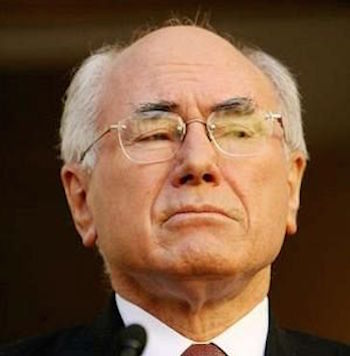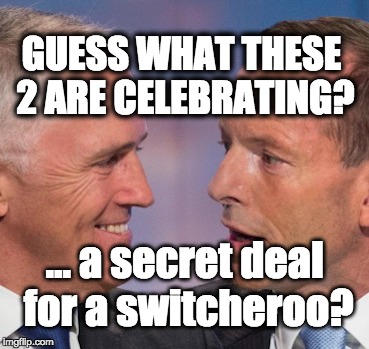LOOPHOLES in the law mean that Australian consumers are unknowingly buying meat from animals that have been slaughtered without being stunned first, as required by law.
Exemptions from the requirement to stun animals are granted to a small ritual market — but cuts of the meat not suitable for the kosher market then end up on the supermarket shelf or at the butcher, without special labelling.
Animal welfare will again be on the agenda at this Friday’s meeting of the COAG Standing Council on Primary Industries. Discussions are also expected to include an on-going issue that has slipped beneath the public radar — the ritual slaughter of farm animals in Australia.
Thanks to labelling laws, what goes into sausages is no longer a mystery. But for RSPCA’s Melina Tensen, it doesn’t go far enough.
According to Ms Tensen:
“People are unwittingly buying non-stunned lamb because it is unlabelled. Unlike halal, only the forequarter of the animal is suitable for the kosher market so the rest ends up on the super market shelf or at the butcher.”As one meat producer in Victoria explained:
“That’s 70% of the animal including two family favourites— the Sunday roast and barbecued loin chops.”
Meat regulators in Victoria and NSW confirmed that there is no legal requirement under the national Food Standards Code to label meat that has been processed under ritual slaughter arrangements as “kosher”.
There is no kosher slaughter in South Australia, according to the South Australian Minister for Primary Industry’s office.
Four Corners’ award-winning 2011 investigation, A Bloody Business, exposed animal treatment in Indonesian abattoirs. It ignited a national debate about live exports and mandatory stunning. But few ABC viewers were aware that slaughtering conscious animals was legal under a religious “loophole” in Australia.
The recent televised footage showing the killing of a pig in NSW revived the debate and led to the abattoir’s closure.
According to Glenys Oogjes of AnimalsAustralia, Hawkesbury Valley is one of several abattoirs in Australia with an “approved arrangement” under current Australian standards which allows the slaughter of fully conscious livestock for the Halal and Kosher market.
Ms Oogjes:
“Two abattoirs in New South Wales and South Australia have an ‘arrangement’ with the state authority. In Victoria, four exporting abattoirs have a similar exemption with the Australian Quarantine and Inspection Service (AQIS).”Lee Norris of Australasian Meat Industry Employees Union (Queensland) said he agreed:
“The authorities and AQIS don’t make the information public. Animals Australia has had to get an FOI order.”
“Because of the secretive nature surrounding the granting of exemptions, it is not possible to compile an accurate list of establishments”.
According to Mr Norris, there is widespread acceptance in Australia that reversible “electrical” or “percussion” pre-stunning is consistent with Halal slaughter. These methods temporarily stun without causing injury.
The President of the Australian Federation of Islamic Councils, Ikebal Patel, said all but a conservative minority support pre-stunning.
“In Islam, kindness to animals is encouraged”,Mr. Patel said.
Ms Oogjes estimated around 250,000 sheep are killed annually without stunning. Limited exceptions for the kosher market, for a small number of cattle, allow stunning immediately after the throat is cut.
But not so for sheep.
“It’s important to note, that this is almost exclusively a kosher kill issue”, Mr. Norris said.
Government Studies show that slitting the throats of conscious sheep causes pain, distress, terror and panic for up to 20 seconds.
“Try counting to 20 and imagine the beast’s horror,” Ms Oogjes said.
But Rabbi Mordechai Gutnik from Kosher Australia disagreed.
“We have studies proving it is not inhumane,”he said.
Rabbi Gutnik said there was evidence that when the cut to the throat is done by trained kosher slaughtermen, the animal feels little pain.
Greens’ spokesperson for animal welfare,Senator Lee Rhiannon, said the Greens’ position was unequivocal.
“All abattoirs should be required to pre-stun before slaughter,” said Senator Rhiannon.
The AMIEU and the Australian Meat Industry Council have lined up with the Greens and animal welfare groups. Until October 2011, so did the South Australian agriculture minister. The new leader, Jay Weatherill, has replaced Michael O’Brien with Gail Gago.
The former Bligh Government in Queensland was alone in banning the practice.
In an opinion piece on February 16, 2012, Federal Labor MP Melissa Parke said that, during the live export ban, farming groups had accused the minister of
“…having a conflict of interest because he had to attend to the welfare of animals as well as the concerns of the industry.”Last December, Ms Parke moved a motion at the Federal Labor Conference for an independent Federal Office of Animal Welfare. Delegates voted unanimously to establish the federally funded office.
In Jordan, 80 per cent of livestock is now stunned before slaughter, after Animals Australia’s Lyn White teamed up with HRH Princess Alia bint Al Hussein, sister of Jordan’s king.
“But as long as governments prevaricate", said Glenys Oogjes from Animals Australia, “the delay will send a terrible message to our international trading partners.”
Melina Tensen from the RSCPA agrees.
“Until they resolve the issue domestically, there is little to stand on for arguing for stunning in countries that import Australian livestock for slaughter”, Ms Tensen said.
This work is licensed under a Creative Commons Attribution-NonCommercial-NoDerivs 3.0 Australia License









